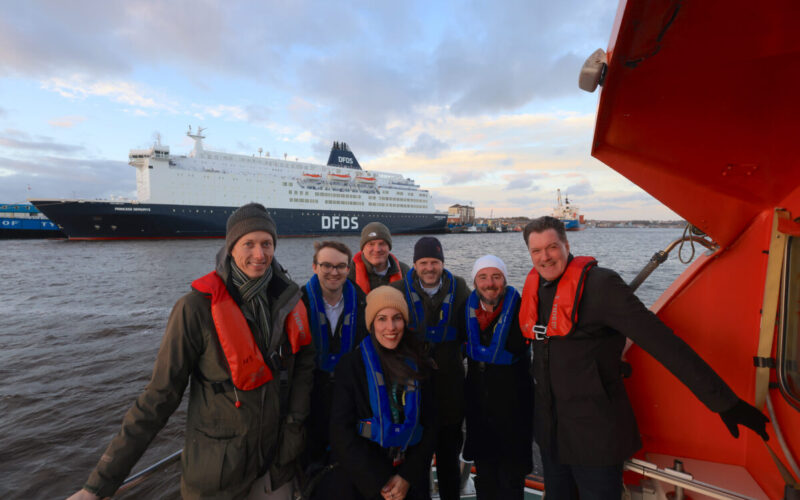The Port of Tyne has officially launched the Green North Sea Shipping Corridor Project, connecting the UK to Amsterdam.
The Northeast is playing a major part in a new government-funded initiative designed to advance environmentally friendly travel within Europe and secure green jobs of the future.
Partners from across the UK and Europe including DFDS, Ricardo and KVSA, came together at the Port of Tyne recently to officially launch the ‘Green North Sea Shipping Corridor Project’, which aims to create one of the world’s first green shipping corridors between the Port of Tyne and the Port of IJmuiden in Amsterdam.
The project is part of a £9 million ($11.4 million) investment announced by Maritime Minister Mike Kane in October while at the Port of Tyne, to decarbonise shipping and turbocharge green jobs, from which the Port of Tyne was successful in winning the International Green Corridors Fund (CMDC5: IGCF).
This initiative aligns with the partners’ commitment to sustainability and plans for DFDS to target a significant reduction in CO2 emissions, by transitioning to methanol-fuelled RoRo/RoPax vessels, driving the shift towards a greener future for global trade.
The project aims to determine the necessary landside infrastructure at the two ports for fuelling and electrification, analyse the fuel supply chain and evaluate the economic and environmental benefits.
READ: The Port of Tyne launches Carbon Literacy toolkit
Matt Beeton, CEO at the Port of Tyne, said: “This initiative represents a huge step forward for the port in our sustainability journey and it was fantastic to gather with our partners to forge ahead with our plans. The route is a key connection for the region and the wider UK, supporting important tourism and trade.
“By establishing this green corridor between the Port of Tyne and the Port of IJmuiden, we aim to significantly reduce carbon emissions between the North East of England and Europe, with the aim of saving up to 850,000 tonnes of CO2 annually.
“The success of this project will bring more green jobs to the region and drive the development of port infrastructure for electrification and the refuelling of state-of-the-art clean powered vessels.”








